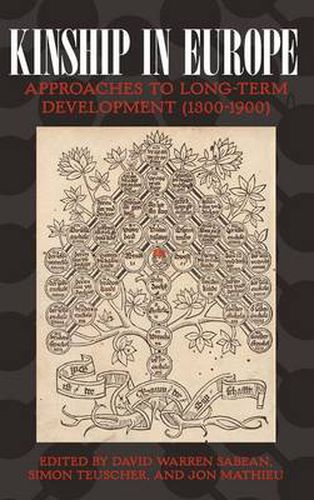Readings Newsletter
Become a Readings Member to make your shopping experience even easier.
Sign in or sign up for free!
You’re not far away from qualifying for FREE standard shipping within Australia
You’ve qualified for FREE standard shipping within Australia
The cart is loading…






Since the publication of Philippe Aries’s book, Centuries of Childhood, in the early 1960s, there has been great interest among historians in the history of the family and the household. A central aspect of the debate relates the story of the family to implicit notions of modernization, with the rise of the nuclear family in the West as part of its economic and political success. During the past decade, however, that synthesis has begun to break down. Historians have begun to examine kinship - the way individual families are connected to each other through marriage and descent - finding that during the most dynamic period in European industrial development, class formation, and state reorganization, Europe became a kinship hot society. The essays in this volume explore two major transitions in kinship patterns - at the end of the Middle Ages and at the end of the eighteenth century - in an effort to reset the agenda in family history.
$9.00 standard shipping within Australia
FREE standard shipping within Australia for orders over $100.00
Express & International shipping calculated at checkout
Since the publication of Philippe Aries’s book, Centuries of Childhood, in the early 1960s, there has been great interest among historians in the history of the family and the household. A central aspect of the debate relates the story of the family to implicit notions of modernization, with the rise of the nuclear family in the West as part of its economic and political success. During the past decade, however, that synthesis has begun to break down. Historians have begun to examine kinship - the way individual families are connected to each other through marriage and descent - finding that during the most dynamic period in European industrial development, class formation, and state reorganization, Europe became a kinship hot society. The essays in this volume explore two major transitions in kinship patterns - at the end of the Middle Ages and at the end of the eighteenth century - in an effort to reset the agenda in family history.